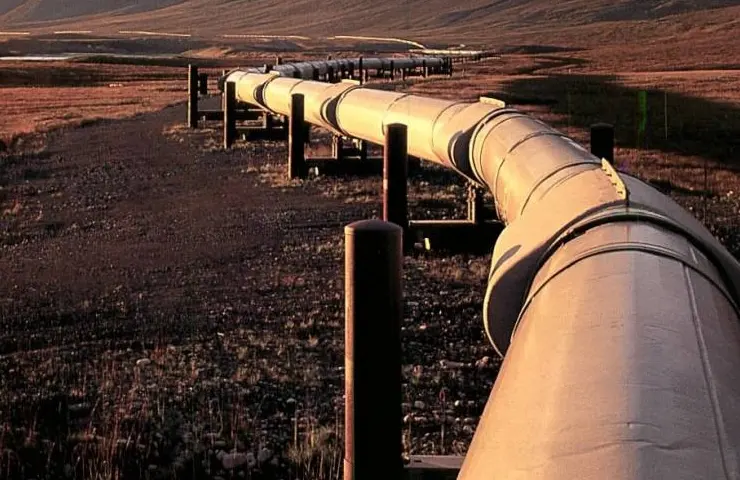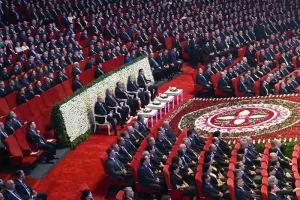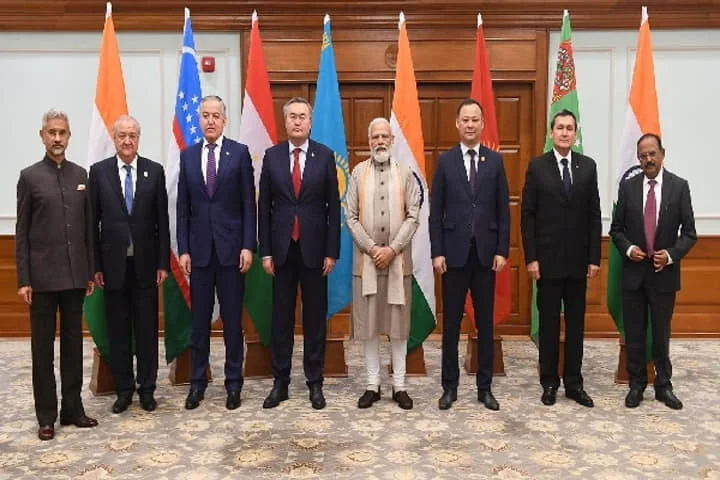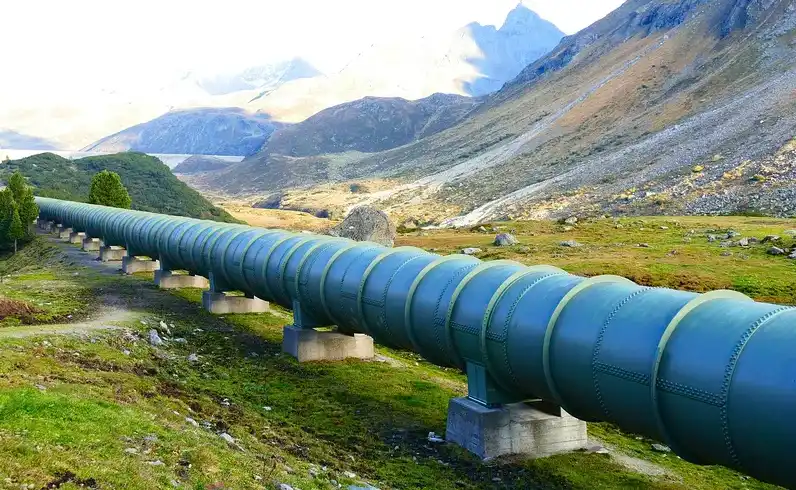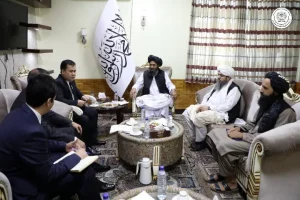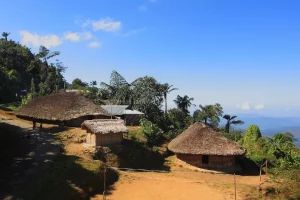On March 19 Turkmenistan sworn in its new president. The country's vice Prime Minister Serdar Berdymekhmedov was elected president in the country’s early elections held on the 12th of this month, winning by 72.97 per cent votes. He is the son of incumbent president Gurbanguly Berdymekhmedov. This is the third president who will assume office since the country emerged an independent sovereign state. This is also the second dynastic transition of power in the region in the post-Soviet space after president Heydar Aliev of Azerbaijan passed on power to his son Ilham Aliyev in 2003.
As the son of the country's outgoing president, Serdar Berdymekhmedov unsurprisingly has an impressive resume. In 2013-2016 he was Deputy Director of the State Agency for Management and use of Hydrocarbon Resources under the president of Turkmenistan—a powerful position in the county which has the world's second largest natural gas field. From 2016, he began his political activities, being elected to the Mejlis—the Turkmen parliament. From 2017 he worked for a year as the Chairman of the committee of legislation and norms in the Melissa. In 2018 he became the Deputy Foreign Minister and in January-June 2019, he worked as the Deputy Head of the Akhal Region.
In June 2019 Serdar Berdimuhamedov headed the Administration of Akhal Region. In February 2020 he was appointed to the post of Minister of Industry and Construction Production of Turkmenistan. In February-July 2021 he worked as Deputy Chairman of the Cabinet of Ministers of Turkmenistan, Chairman of the Supreme Control Chamber of Turkmenistan and Member of the State Security Council of Turkmenistan. Since July 2021 he has been the Deputy Chairman of the Cabinet of Ministers of Turkmenistan for economy, banks and international financial organizations.
Also read: Will the TAPI gas pipeline project be given a formal burial if Taliban wins in Afghanistan?
After the election results were announced, the President-elect said at a meeting of the Cabinet of Ministers and the State Security Council, “I will use all my strength, abilities, knowledge and experience to prove the high trust placed in me by the people.”
The new president has his work cut out for him. The economy has to be strengthened and since it is based mostly on energy exports, markets have to be diversified. Energy-rich Turkmenistan, like all of its fellow Central Asian neighbours, is landlocked which impedes its pipeline options. For years, the country has been trying to activate the Transcaspian route through Azerbaijan and Turkey but has been unable to because of Russian concerns. The TAPI (Turkmenistan-Afghanistan-Pakistan-India) pipeline is another one that has not taken off despite being discussed for two decades, with numerous stakeholders evicting interest in the project. This would have delivered Turkmen gas to energy starved South Asia. Instead, Turkmenistan has been able to sell its gas to China via the China Central Asia pipeline to the tune of 35 billion cubic meter annum (BCMA), but falling gas prices and China's Covid-19 hit economy has impacted negatively on Turkmen exports. Yet, the country, is one of the few that has a positive balance of trade with China.
Such an export-based economy has meant over the years rise in poverty, unemployment and a brain drain. Earlier this year Turkmenistan saw one of the rare protests against inadequate supplies in government-owned food shops, on which most Turkmens rely for their food. Covid-19 has dealt a further blow to the Turkmen economy despite the fact that the word has been banned in the country, not a single covid case reported, but with reports of patients being hospitalized and dying of covid-like symptoms. The region is in further turbulence with the ascent of the Taliban in neighboring Afghanistan, the January uprising in Kazakhstan blamed on radicals, and the current Russian war on Ukraine.
Therefore, it is significant that the new president has outlined his foreign policy objectives as one that would prioritize relations with Russia and China. Pursuing its neutral status, Turkmenistan is neither a member of the Russia-led Collective Security Treaty Organization (CSTO), nor the China-led Shanghai Cooperation Organization (SCO). However, it may now try to pursue stronger ties with Russia as a hedge against a possible unrest in the country or to counter any challenge that may arise from outside. Given the way the CSTO quelled the Kazakh riots and then quickly withdrew, it may be more amenable for regional countries now.
Another reason could be that Russia, as a Caspian Sea littoral state, has till now impeded Turkmenistan from pursuing the Transcaspian route to European markets. Given the spate of sanctions Russia has been hit now by the West, activating this route may now work out to the benefit of both.
Yet another issue that holds priority for Serdar Berdymekhmedov is the completion of the TAP (Turkmenistan-Afghanistan-Pakistan) electricity pipeline, and the TAPI gas pipeline. To that end, Turkmenistan has been courting the Taliban for a while, even before the latter seized Kabul. It had been delivering electricity to border regions under Taliban sway even during the Ashraf Ghani government. However, turbulence in the region has impeded the supply of Turkmen electricity to Pakistan via Afghanistan, as well as the completion of the TAPI project. In this the Taliban are also greatly invested. Delegations have traveled to Ashkhabad, the Turkmen capital before and after the Taliban took charge in the war-torn country as well as meetings between representatives of both sides have taken place in Doha, Qatar.
It is, therefore, not surprising but interesting nevertheless that the Taliban just named their envoy to Ashkhabad, on Thursday, 17th March. The ceremony where Fazal Mohammed Saber took up his duties as the envoy of the Islamic Emirates of Afghanistan to Ashkhabad took place in the presence of Turkmen Deputy Foreign Minister Vepa Hadjiev. In spite of the turbulence in Afghanistan and in spite of international recognition still eluding the Taliban, Turkmenistan may still continue to export electricity, gas, and other consumer supplies to its neighbour. But can it get the TAPI project back on track? That will be the challenge for the new President. And if he is successful then it would indeed be his great achievement that would benefit not only his country but equally Afghanistan, Pakistan and India. That remains to be seen.
Also read: After Taliban takeover, Qureshi visits Turkmenistan, tries to revive TAPI gas pipeline project






